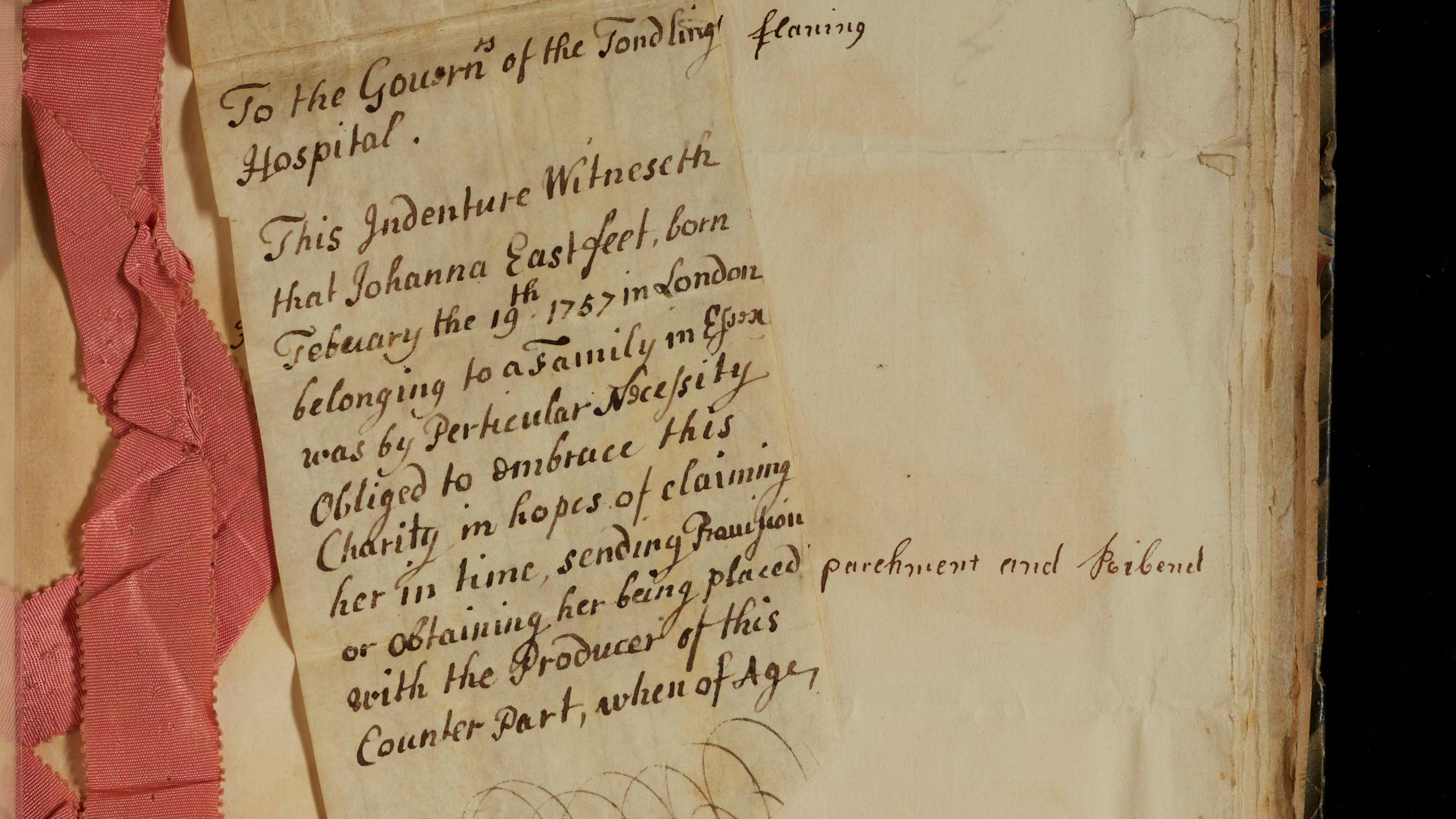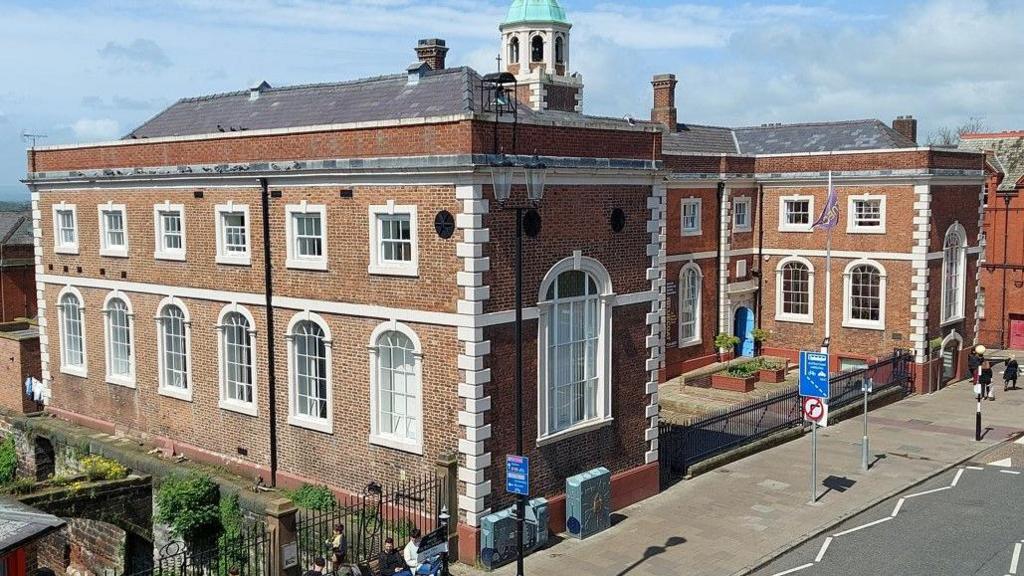'Foundling' children's stories told for first time

A note left by the family of a baby who were forced to give her up "by necessity"
- Published
The untold stories of thousands of children left at 'foundling hospitals' - including one in Chester - have been published for the first time.
Established in 18th Century London, the institution was designed for children who could no longer be cared for by their often desperate parents.
With the original Foundling Hospital overwhelmed, branch hospitals were later set up across the country including in Chester - these days on the site of The Blue Coat School.
A project called Voices Through Time has digitised tens of thousands of documents, available to be searched by anyone with an internet browser.

The names of children left at the foundling hospital in Chester
The project is the work of Coram, a network of charities that evolved from the first Foundling Hospital established in 1739.
At the Chester branch, 306 children were admitted between the date it opened in 1763 and 1769, after the London site struggled with about 4,000 admissions a year.
All the children were sent from London as the branch hospitals did not take direct admissions.
Many of those Chester foundlings were later sent on "apprenticeships" all over the North West from the ages of eight until 21.
Chester historian and writer Anthony Annakin-Smith, who worked on Voices Through Time, told the BBC the documents included "heartbreaking" notes from parents forced to make tough decisions.
He said one "truly desperate" case was a mother of 11 children, including a new baby, whose husband had recently died.

The Blue Coat School in Chester, which in the 18th Century was the site of a Foundling Hospital branch
"She is just at her wit's end, she is desperate, and she just hopes the Foundling Hospital can take the child", he said.
The notes are one example of the hospital's "token" system, where mothers or relatives leaving a baby gave staff an object - such as a coin - so that they could be identified if they were ever able to return to claim their child in better times.
Mr Annakin-Smith said the archive was free to use on the Coram website and included a database of 20,000 children whose names can be searched.
He said: "There is certainly a lot of opportunity for people to search their family tree, to look back if they suspect they had a foundling in the family at some point in the past - they can use the database to explore that."
Voices Through Time, funded via the National Lottery Heritage Fund, involved nearly 6,500 volunteers from around the world transcribing the digital pages to enable their contents to be searched online.
Dr Carol Homden, CEO of Coram, said: “Through these extensive and detailed records, we are able to discover the untold stories of thousands of children who were raised at the Foundling Hospital in the 18th and 19th Centuries, and hear rare first-person accounts of the issues faced by women who had no source of support in the harsh environment before the welfare state."
Listen to the best of BBC Radio Merseyside on Sounds and follow BBC Merseyside on Facebook, external, X, external, and Instagram, external. You can also send story ideas to northwest.newsonline@bbc.co.uk, external